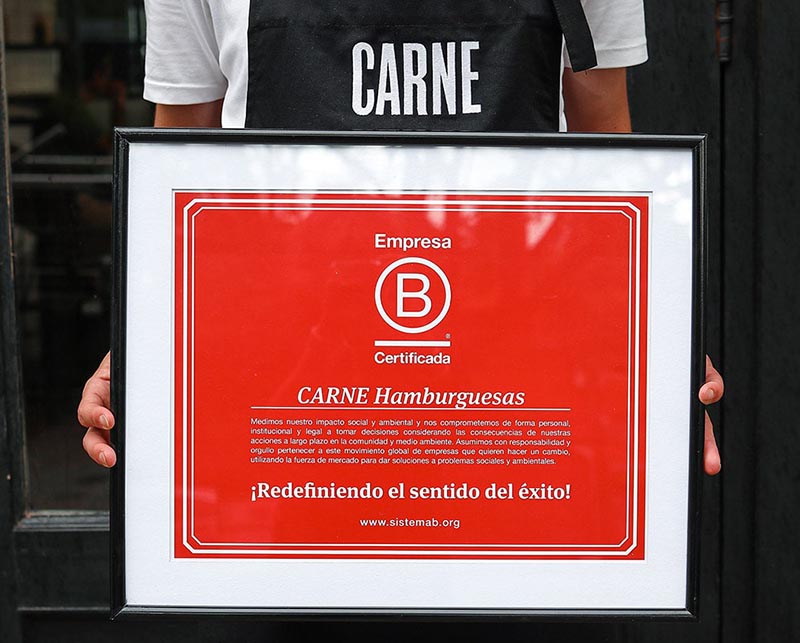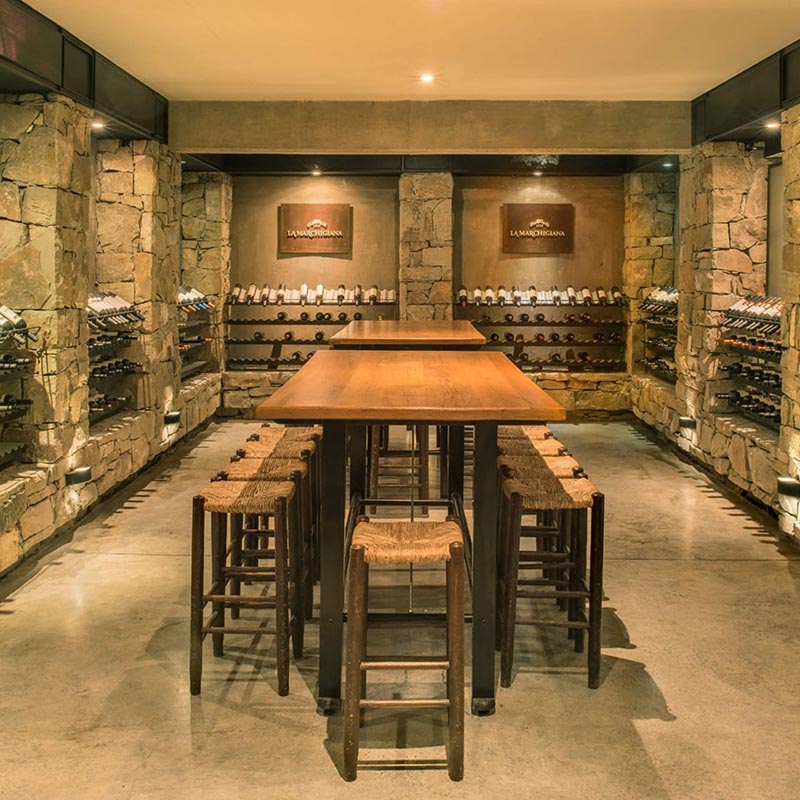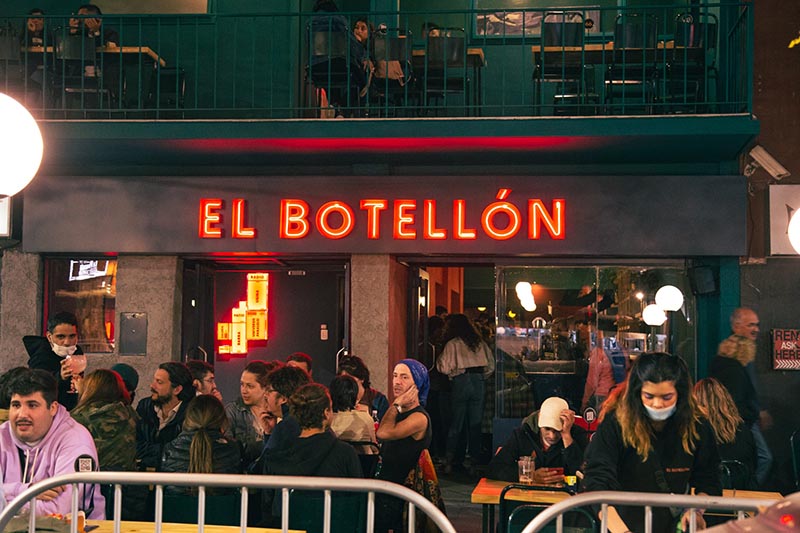“A transition toward a new economy,” this is how the world of business describes its intent to introduce a new economic paradigm in which sustainability and inclusion count as much as profitability. So-called “B-businesses” are part of this movement: companies that stand out not so much for being “perfect” but rather for their focus on continuous improvement in three key areas: economic value, social outlook and environmental impact.
It isn’t easy to get B-business certification, an international initiative implemented in Argentina by the non-profit group Sistema B. Around 6000 companies across the world have met their very high standards for social and environmental performance, responsibility and transparency.
The restaurant sector is slowly becoming a part of the movement: of the 193 companies that earned the certification in Argentina, seven are gastronomic projects. And four of them are in Mendoza.

Mendoza restaurants with B certification
The now legendary restaurant La Marchigiana (which has two locations in the provincial capital), the cultural bar El Botellón (which also has a radio station, an art gallery and organizes environmental projects), the chocolate makers and ice cream parlor Bianco & Nero (which has branches across Mendoza and also in Lima, Peru) and the burger restaurant Carne (who have locations in Mendoza’s Quinta Sección neighborhood, La Plata, Parque Leloir, Lomas de Zamora and Olivos), make up the list, along with Pulpería Quilapán and the catering services Teist and Cook Master, who are based in Buenos Aires.
Mendoza restaurants with B certification are thus leading the country but all signs point to this business commitment, especially among gastronomic enterprises, to use their position to create social, environmental and economic value, spreading across Argentina.
An educational journey
Mendoza restaurants with B certification are a diverse and fascinating group.
“Carne was founded with a triple impact philosophy. To get certification, we didn’t need to change too much, but rather systematize and reinforce existing concepts,” says Carolina Giménez Milán, the Head of Corporate Affairs at the firm founded in 2016 by the Argentine Chef Mauro Colagreco.
“What Mauro wanted to demonstrate was that even within a large-scale enterprise like Carne, it’s possible to maintain the pillars of sustainable gastronomy, following natural cycles, organic production and regenerative farming. And in fact, in 2019 we became the first burger chain in the world to achieve certification as a B-business.”

Having been in Mendoza for over 70 years, La Marchigiana was the first restaurant in Argentina to get B certification back in 2015. Apart from its proven gastronomic success, the project now run by the fourth generation of the Barbera family is typified by extremely careful selection of suppliers, its waste management program and even an initiative to help employees buy their first home.
“’La Marchi’ is an important part of Mendoza culture and local history, and becoming a B-business is just another demonstration of our commitment to society. The ‘community-business’ relationship has always existed here,” says Valentina Tornello, Brand Manager at the Grupo Broda.
“We opened the bar in 2017. A year later, we heard about Sistema B and it seemed right up our alley: we were interested by the idea of helping businesses in their self-assessments,” says one of the founding partners of El Botellón, Matías Bismach.

He adds, “But beyond the certification we achieved in 2019, the most valuable part of the process was that it helped us to create a culture and rethink our relationship with suppliers and customers.” He further notes that the province is playing an important role in the sustainability movement, supported by a professional community that believes in this new way of doing business.
It’s no coincidence that the Universidad de Cuyo is the first in Latin America to provide courses in the Triple Impact approach. Mendoza also hosted Sistema B Argentina’s National Business Conference last August, in which the “Impact Ecosystem” company provided a range of different ways to reconnect with the philosophy.
“I don’t know if there’s an immediate, concrete business impact from B-business certification,” reflects Giménez Milán. “The advantages are more linked to the process, which requires recertification every three years, keeping us on a path of continuous improvement, and helping you to see yourselves from a different perspective. It definitely gives a boost to credibility: it shows our customers that we’re telling the truth about what we do.”



